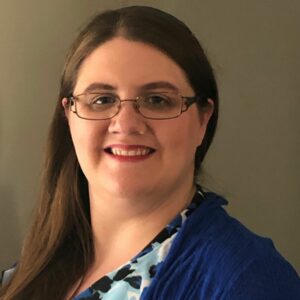
By Miriam Leisman Rubin
As I placed my luggage in the car, my phone buzzed — “I-95 is a mess … a tanker truck fire caused a collapse of the highway …” As I drove to Newark to catch my flight to Israel for a mission trip as part of the Sinai Temple Israel Center Rabbinical Student Fellowship, I feared the destructive chasm on I-95 would foreshadow the weeklong experience.
My fear was not entirely unfounded.
In the waning months of the Second Intifada, my college sent me to study in Jerusalem. It was less than six months since my conversion to Judaism, and I recognized quickly that while I had learned a lot about an idealized Israel from the perspective of Diaspora Jews, nobody had spoken to me openly about Israel’s social complexities.
When I walked to campus, I passed separate bus stops for Israeli and Arab buses and wondered how the situation wasn’t like apartheid. When I went to the kotel to pray for guidance, I wore a headscarf over my kippah and questioned whether I had just replaced Christian fundamentalism for its Jewish counterpart.
After five days, I returned home, certain I had failed at Judaism. I had genuine questions and sought dialogue to understand how others reconciled the political realities of Israel with their religious values.
I inquired about our communal choice to provide unconditional financial and political support to a country that would not recognize the authority of our rabbis. I asked how, coming from a legal system that had acknowledged a half-century earlier that separate was not equal, our communities justified Israel’s policies toward Palestinians. I found no partner for dialogue.
On the contrary, asking questions incited attacks against me. I was told that such questions threatened the continued existence of the Jewish state and the Jewish people. It quickly became clear to me that my concerns had no place in the Israel conversation, and I chose to set aside my hopes for rabbinical school and focused on secular education.
After more than a decade as a mathematics educator, I reengaged as a Jewish leader. I served on the board of directors of my synagogue and ultimately decided that I want to impact Jewish life through rabbinical work.
Two years ago, I began rabbinical school, and this fall I return to Israel to study. This Israel requirement has weighed heavily on me for the past several years. Not only have my questions, uneasiness and struggles about and with Israel remained, but my fear of failure was reignited by a petition signed by many colleagues the semester before I enrolled.
Last fall, when I learned about Sinai Temple’s Israel Center’s new program, I realized that it was an opportunity to engage in these difficult conversations. This rabbinical fellowship, envisioned by Rabbi Erez Sherman, recognizes the need for us to develop tools and networks to bridge the chasms of a variety of issues. It acknowledges that we need to hear unmediated voices for ourselves to facilitate nuanced conversations and build bridges about divisive topics, including Israel.
This needs to be the future of American Jewish clergy.
On the fellowship trip to Israel in June, I learned of perspectives that never would have occurred to me.
Why does one Israeli believe that soon it will be hypocritical for a person to call themselves Orthodox if they live outside of Israel? How do a planetarium and makerspace help keep children safer from incendiary balloons and rocket fire? How can two Israelis disagree about whether or not the country has a Constitution? How can capital investment in Israel be a good thing for Palestinians? When the will of the politicians and the people diverge, how do we prevent harm to those at the margins?
These questions represent only some perspectives shared with us. We were not asked to agree with them. This was not a debate. While there were many assumption-undermining, thought-provoking conversations, those who spoke to us had no goal beyond sharing their experiences with us.
My first Israel experience lasted five days and left me silenced. Our yearlong fellowship program where we heard from renowned historians, academics, journalists, political leaders and activists from all different religious and political persuasions and backgrounds, culminating in a seven-day trip to Israel to get a firsthand and deeper understanding, has left me in awe of the diversity of perspective in Israel and the Palestinian territories.
Soon, I begin my longest trip to Israel yet — my required year of study. Because of this fellowship, I no longer fear that I will be an outsider. I know that I will be one voice among all those — Israeli, Palestinian and others — who yearn for a better and more stable future for all. And I hope to bring this nuance to my rabbinical work.
Silence is never the answer. One view cannot be embraced while another shunned. We must be able to engage with each other to fully connect and be a strong community.
Miriam Leisman Rubin is a rabbinical student at the Jewish Theological Seminary.





